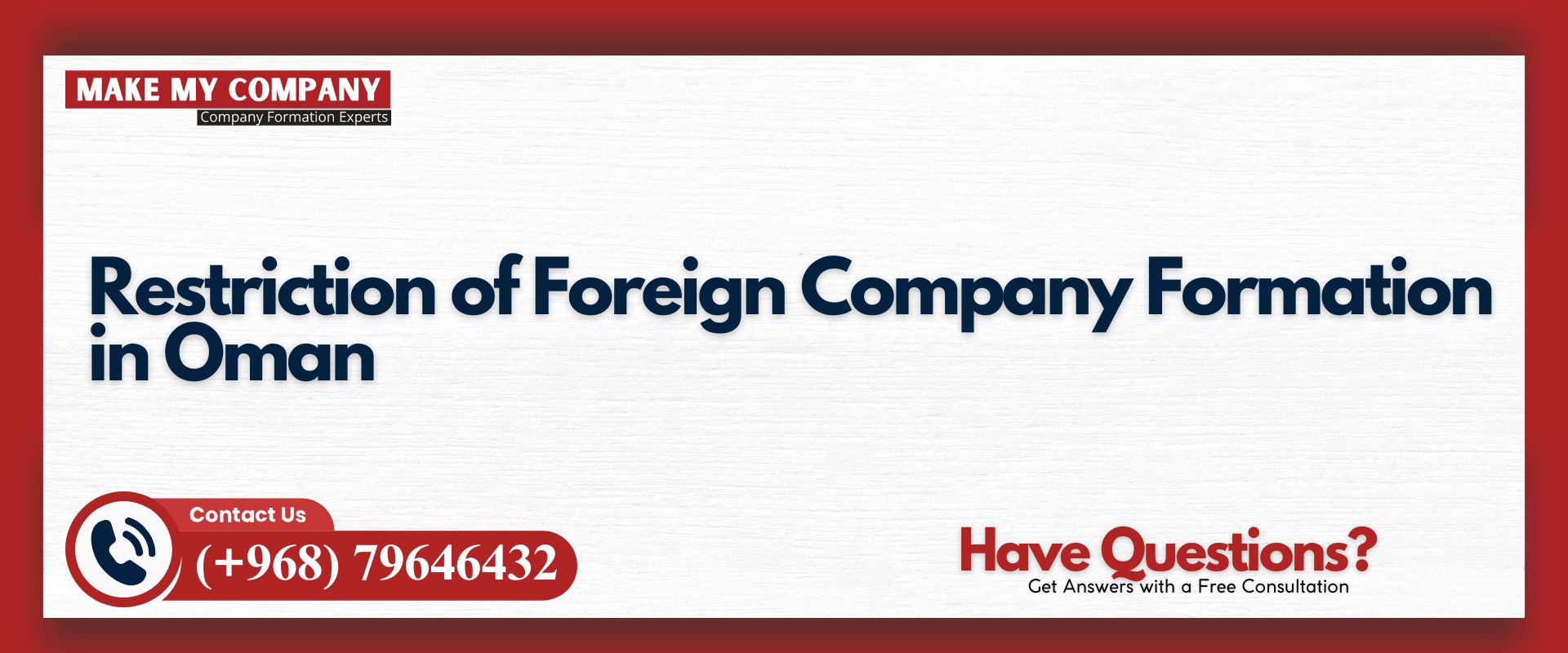If you’re an entrepreneur or investor based in Abu Dhabi and looking to expand your business into the Sultanate of Oman, you’re on the right path. With a stable economy, strategic location, and business-friendly laws, Oman is becoming a top destination for regional and international companies. But how do you go about registering a company in Oman from Abu Dhabi?
This comprehensive guide breaks down everything you need to know, including legal structures, required documents, regulatory authorities, licensing options, and the complete step-by-step process. Whether you’re planning a mainland company, LLC, or branch office, this article will show you how to do it legally, efficiently, and cost-effectively.
Why Register a Company in Oman from Abu Dhabi?
Many UAE-based businesses choose Oman as their next destination due to its strong regional trade ties, geographic proximity, and low operational costs.
Key Advantages of Expanding from Abu Dhabi to Oman
- 100% foreign ownership (in approved sectors)
- No personal income tax
- Competitive corporate tax rates (15%)
- Access to GCC markets
- Stable and business-friendly regulatory environment
- Low-cost setup compared to other GCC countries
If you are operating from Abu Dhabi, your proximity to Oman makes cross-border business coordination more accessible and manageable.
Legal Entities Involved in Company Registration in Oman
When registering a business in Oman from Abu Dhabi, you’ll interact with the following official entities in Oman:
Ministry of Commerce, Industry and Investment Promotion (MOCIIP)
This is the main government body responsible for company registration and commercial licensing in Oman. All company formation processes go through the MOCIIP portal.
Oman Chamber of Commerce and Industry (OCCI)
Registration with the OCCI is mandatory for all businesses. It provides a certificate that proves your business is recognized under Omani commercial law.
Tax Authority of Oman
Responsible for tax registration, VAT, and corporate tax filings. Once your business is formed, it must register with the tax authority.
Ministry of Labour (MoL)
If you plan to employ staff in Oman, registration with the Ministry of Labour is necessary for obtaining labor cards and managing employment contracts.
Royal Oman Police (ROP) – Immigration
Handles residency visas, investor visas, and immigration services for foreign business owners and employees.
Business Structures Available in Oman
Your company’s legal structure will determine ownership rights, liability, and tax exposure. Here are the main structures recognized by Omani law:
Limited Liability Company (LLC)
- Most popular structure for SMEs
- Can be 100% foreign-owned (with minimum OMR 150,000 capital in some sectors)
- Requires a minimum of 2 shareholders
Branch Office
- For companies already registered in Abu Dhabi or elsewhere
- Requires approval from MOCIIP and sector-specific regulators
- Cannot perform commercial activities outside parent company’s scope
Representative Office
- Used for market research or promotion
- Not allowed to perform commercial or profit-generating activities
Joint Stock Company (SAOC/SAOG)
- Suitable for large enterprises or businesses planning IPO
- Requires more shareholders and higher capital
Sole Proprietorship
- Only available to Omani nationals
- Not applicable for investors from Abu Dhabi
How to Register a Company in Oman from Abu Dhabi – Step-by-Step
Here’s a complete guide on how to register a company in Oman while based in Abu Dhabi:
Step 1 – Select the Right Business Activity
Choose your intended business activity from the MOCIIP’s official list. Some activities require special approvals from relevant ministries (e.g., health, tourism, telecom).
Step 2 – Decide on Company Structure and Capital
If you choose an LLC, you’ll need:
- Minimum capital of OMR 20,000 to 150,000 (depending on ownership and activity)
- A local Omani partner is optional, depending on the sector
Step 3 – Reserve Trade Name
Submit your proposed company name for approval via the Invest Easy portal, which is Oman’s government business registration platform.
Make sure the name complies with Omani naming regulations and is available for registration.
Step 4 – Submit Incorporation Documents
Documents needed include:
- Passport copies of shareholders and managers
- Board resolution (if a corporate shareholder from Abu Dhabi is involved)
- Memorandum of Association (MOA)
- Articles of Association (AOA)
- Proof of capital deposit (for some licenses)
All foreign documents must be:
- Notarized in Abu Dhabi
- Attested by the UAE Ministry of Foreign Affairs
- Legalized by the Omani Embassy in Abu Dhabi
Step 5 – Register with Oman Chamber of Commerce and Industry
This is a mandatory step after incorporation. Your business becomes a member of the OCCI, allowing it to operate legally under Omani commercial law.
Step 6 – Open a Corporate Bank Account in Oman
Once your incorporation documents are ready, you can open a business account in Oman through banks like:
- Bank Muscat
- Bank Dhofar
- HSBC Oman
- National Bank of Oman (NBO)
Banks will require:
- Trade license
- Passport copies of shareholders
- Board resolution authorizing account opening
- Lease agreement for business premises
Step 7 – Register for Tax and VAT
You must register with the Oman Tax Authority to receive:
- Tax Identification Number (TIN)
- VAT registration (if turnover exceeds the threshold of OMR 38,500)
Step 8 – Apply for Residency and Work Visas
If you plan to relocate or hire employees in Oman:
- Apply for labor clearance with the Ministry of Labour
- Get investor or employee visas through the Royal Oman Police
Required Documents to Register a Company in Oman from Abu Dhabi
| Document | Purpose |
| Passport copies | Identification of shareholders and managers |
| MOA & AOA | Defines business structure and authority |
| Notarized board resolution | Required if an Abu Dhabi-based company is investing |
| Power of Attorney | If using a third-party consultant or agent |
| Capital deposit proof | Required for LLCs with 100% foreign ownership |
| Lease agreement | Proof of office address in Oman |
| Legalized company documents | For corporate shareholders registered in Abu Dhabi |
Costs to Register a Company in Oman from Abu Dhabi
| Expense Item | Estimated Cost (OMR) |
| MOCIIP registration | 100–250 |
| OCCI membership | 100–300 |
| Trade license | 150–1,000+ (depends on activity) |
| Legal attestation in Abu Dhabi | 500–1,500 |
| Local agent or consultant (optional) | 1,000–2,500 |
| Office rental (annually) | 1,000–5,000+ |
| Bank account opening | Varies per bank |
Best Business Activities to Register in Oman from Abu Dhabi
Here are high-potential sectors that attract UAE-based investors:
- Construction and contracting
- Oilfield services
- Import/export and trading
- Tourism and travel agencies
- Education and training centers
- IT services and software development
- Food and beverage businesses
Each of these sectors may require additional permits, so always consult with a specialist or government advisor.
Taxation in Oman for Foreign-Owned Businesses
- Corporate Tax: Flat rate of 15% on net profits.
- VAT: 5% VAT applies to goods and services.
- Withholding Tax: May apply on interest, royalties, or dividends paid abroad.
Oman has signed Double Taxation Avoidance Agreements (DTAAs) with several countries, including the UAE.
Can You Register a Company in Oman Remotely from Abu Dhabi?
Yes. Many business owners in Abu Dhabi register their Omani company remotely, especially through a registered business setup consultant in Muscat or Sohar. You can complete most steps online or through a legal representative.
Conclusion
Registering a company in Oman from Abu Dhabi is not only possible—it’s increasingly popular for investors seeking to grow in the Gulf region. With clear steps, structured processes, and accessible online systems like Invest Easy, it’s easier than ever to tap into Oman’s expanding economy.
From selecting your business activity to getting your license and opening a bank account, this guide gives you a full roadmap to build your company the right way.
Need help registering your company in Oman from the UAE? Get in touch with a licensed consultant or legal advisor to simplify the process and ensure compliance.
FAQs
Can I register a company in Oman while living in Abu Dhabi?
Yes, you can register a company in Oman from Abu Dhabi without being physically present. Most of the process can be done online through the Invest Easy portal or with help from a licensed business setup consultant in Oman.
What are the legal requirements to open a company in Oman from Abu Dhabi?
To start a business in Oman from Abu Dhabi, you’ll need to submit notarized and attested documents, choose a legal structure (like LLC or branch), get approvals from the Ministry of Commerce, Industry and Investment Promotion (MOCIIP), and register with the Oman Chamber of Commerce and Industry (OCCI).
Do I need a local Omani partner to open a company in Oman?
Not always. Certain business activities allow 100% foreign ownership. However, some sectors may require an Omani partner or sponsor, especially those that are regulated or considered strategic.
How long does it take to register a company in Oman from the UAE?
The full company formation process can take 7 to 14 working days, depending on the legal structure, type of activity, and how quickly your documents are attested and approved by Omani authorities.
What is the cost to register a business in Oman from Abu Dhabi?
The cost to register a company in Oman varies based on business activity, license type, and location. On average, it ranges from OMR 1,500 to OMR 4,000, including government fees, legal translations, and document attestation in Abu Dhabi.
Can I open a bank account in Oman from Abu Dhabi?
Yes, once your Omani company is registered, you can open a corporate bank account in Oman. Banks like Bank Muscat, HSBC Oman, and NBO support foreign-owned businesses and allow remote applications with the correct documentation.
What documents do I need to register a company in Oman from Abu Dhabi?
You’ll need:
- Passport copies of owners
- Notarized company documents (if an Abu Dhabi company is involved)
- Memorandum and Articles of Association
- Trade name approval
- Omani office lease (in most cases)
- Board resolution and power of attorney (if needed)









